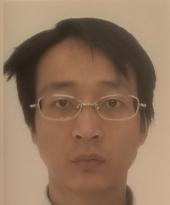Speaker:Di Feng, Assistant Professor (Department of Finance, Dongbei University of Finance and Economics)
Host:Xie Mingjia, Assistant Professor (Li Anmin Economic Research Institute, Liaoning University)
Guest Introduction:He Zhenyu, Assistant Professor (Li Anmin Economic Research Institute, Liaoning University)
Time:September 27, 2024 (Friday) 10:00 – 11:30 (Beijing Time)
Location:Conference Room 1, Wuzhou Garden, 1st Floor, Chongshan Campus, Liaoning University
Online Address:Tencent Meeting 358-6417-4104
Language:Chinese/English
Abstract:We consider an extension of Shapley-Scarf housing markets (Shapley and Scarf, 1974) and house allocation problems (Hylland and Zeckhauser, 1979) to object allocation problems with coalitional endowments (housing markets with existing tenants are an example). For this relatively new class of problems, we consider natural extensions of properties that have been considered for these classical benchmark models as well as a new property: coalitional endowment lower bound (extending individual rationality), group strategy-proofness (applicable without change), coalitional endowments neutrality (extending neutrality), and the new property of preferences swapping reallocation proofness. Our main result is the characterization of a new class of mechanisms by the above properties, the class of sequential priorities-augmented top trading cycles mechanisms.
Speaker Introduction:

Di Feng is an Assistant Professor in the Finance Department at Dongbei University of Finance and Economics. Prior to this, he earned his Ph.D. in Economics from the University of Lausanne (HEC Lausanne) and served as a Postdoctoral Fellow at the Simons Laufer Mathematical Sciences Institute (formerly known as the Mathematical Sciences Research Institute) in Berkeley. He also holds the position of Junior Research Fellow at the Research Institute for Economics and Business Administration, Kobe University. He uses tools from game theory, operations research, psychology, and computer science to study how different markets/mechanisms affect the incentives and motivations of participants, and the corresponding economic outcomes.
